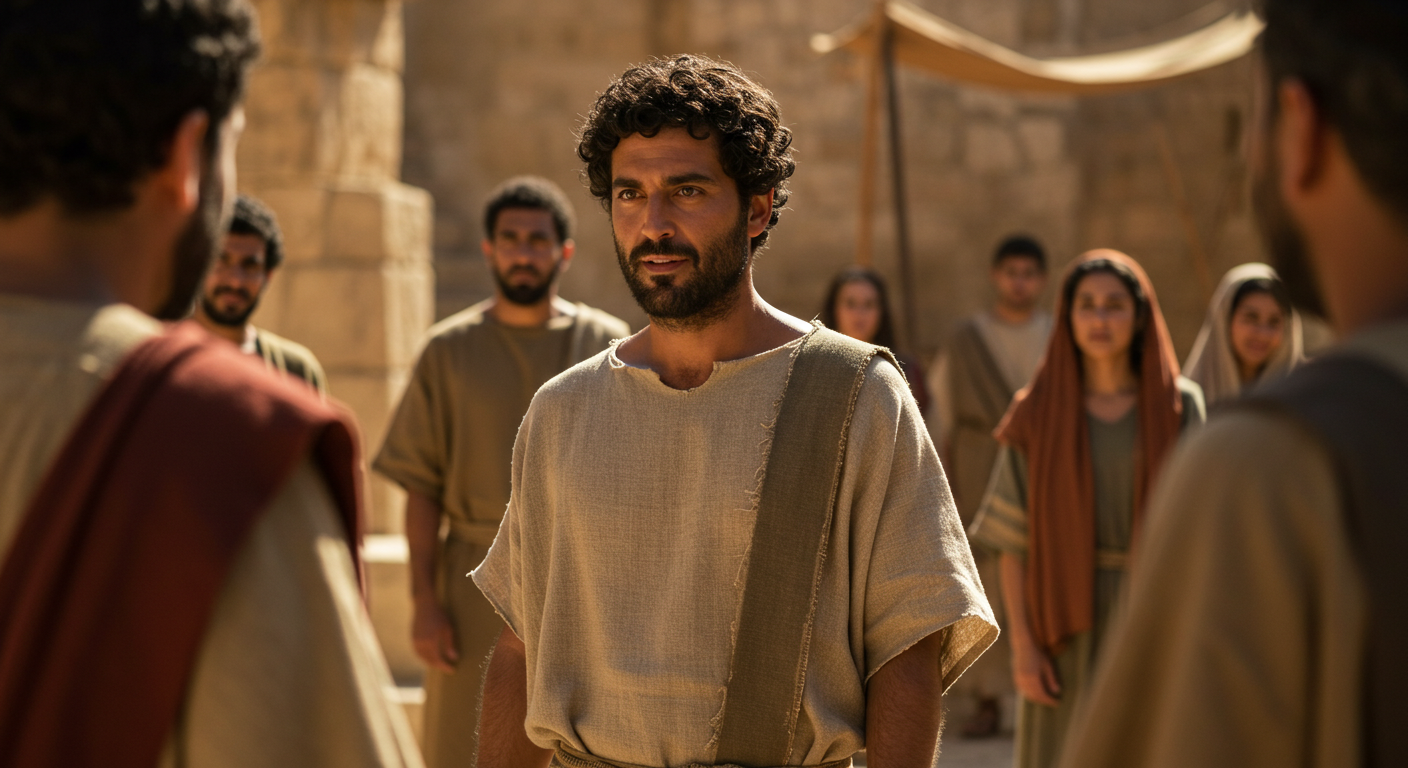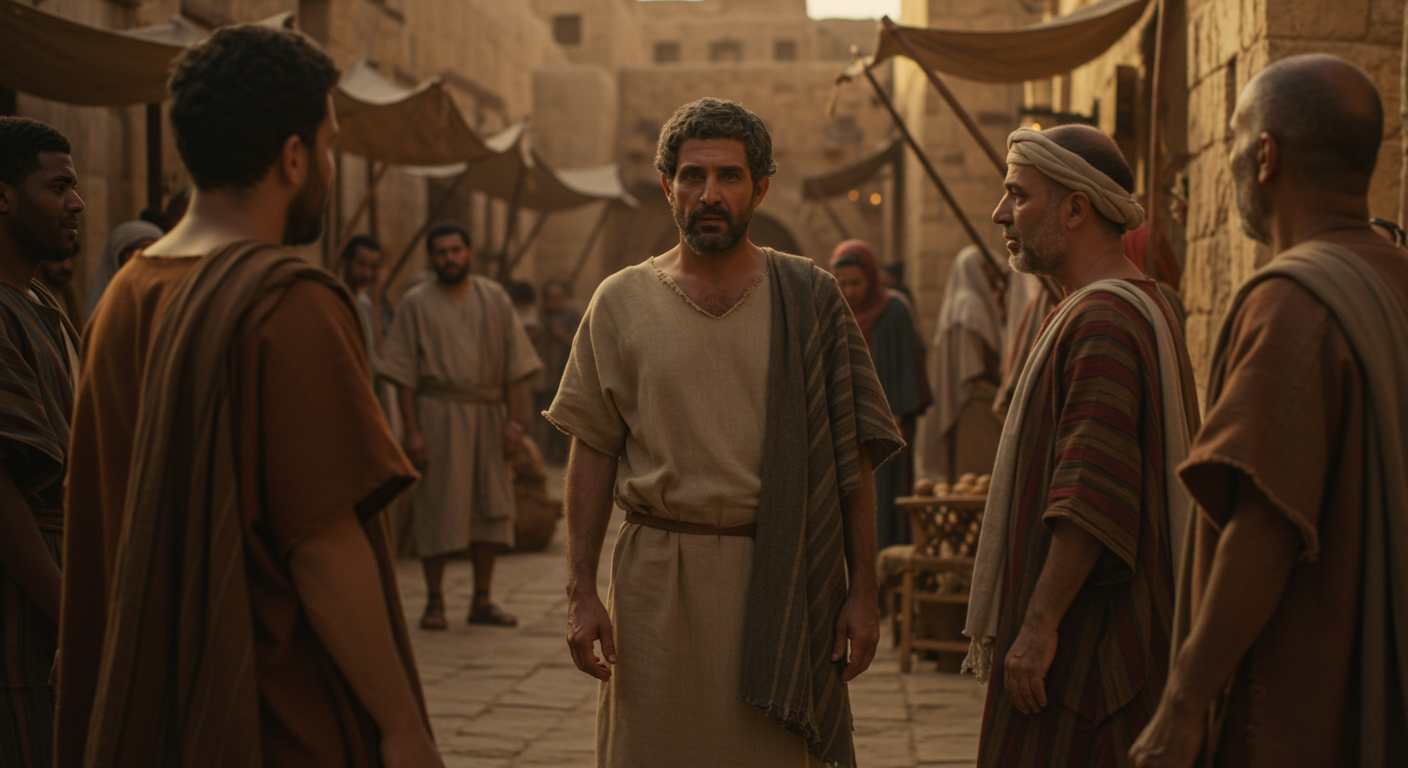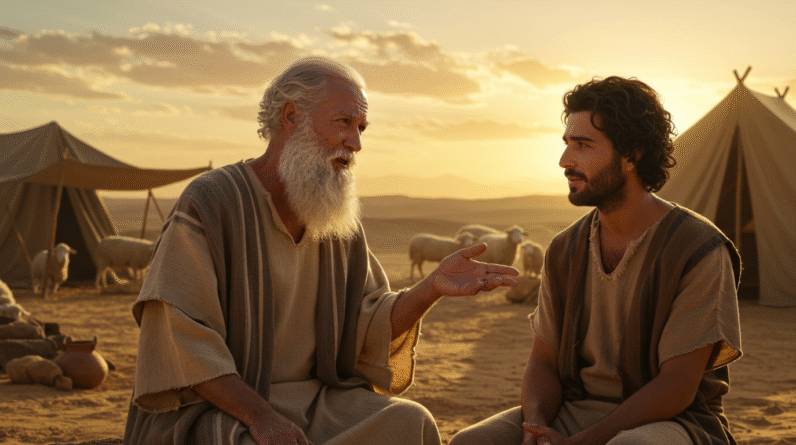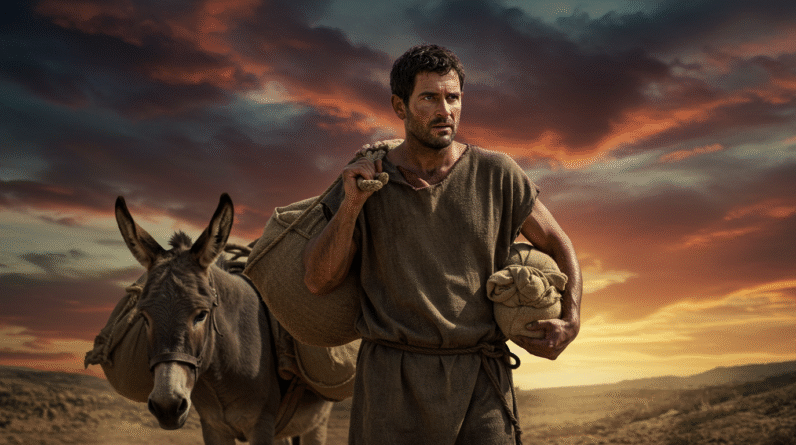Discover Lucius of Cyrene’s impactful role in early Christianity and its modern lessons on diversity, leadership, and spiritual guidance. Unpack his story and insights today.
Exploring the Role of Lucius of Cyrene in Acts and Its Modern Implications
Lucius of Cyrene—a name that may not be as familiar to you as Moses or David, but his role in the early Christian church is just as compelling. Mentioned in the Acts of the Apostles, Lucius provides a fascinating lens through which we can explore the formative period of Christianity. His life and actions challenge us to reflect on themes of inclusion, leadership, and community that resonate deeply even today. In this article, we will delve into the accounts of Lucius in the Bible, examine the lessons that emerge from his life, and consider how his example can inform and inspire our lives today.

Introduction to Lucius of Cyrene
In the bustling community of the early church stood a leader whose geographical roots stretched from Cyrene, a region in Africa, to the heart of Christianity’s expansion. Lucius of Cyrene is mentioned briefly, yet significantly, in the Book of Acts, entwining his life with the spreading of the Gospel. His story opens a window into the diverse makeup of the early believers and highlights the burgeoning movement’s global nature. Lucius’ involvement emphasizes the multicultural dimension of early Christian leadership and provides a poignant reminder of unity within diversity.
Lucius’ Story in the Bible
Lucius makes his biblical debut in Acts 13:1, within a diverse group of prophets and teachers who gathered in the church at Antioch. This mention places him alongside other significant figures such as Barnabas and Saul—men who played crucial roles in the spread of Christianity. The scene is set during a moment of great spiritual anticipation as the leaders worshiped and fasted, and ultimately, received divine guidance to commission Paul and Barnabas on a missionary journey. Although little is documented about Lucius’ actions, his inclusion in this group hints at his influential status and active engagement in the early church’s mission.
The account does not dwell on Lucius at length, yet his brief appearance invites speculation about his contributions and character. As a native of Cyrene, located in the present-day region of Libya, Lucius brought a unique cultural perspective to the early Christian community, which was important in a period characterized by the melding of diverse identities and traditions into a cohesive faith. His presence at Antioch at such a pivotal moment underscores a spirit of collaboration and shared purpose among the early believers.
Lessons from Lucius’ Life
While Lucius’ biblical mention might be sparse, the implications are anything but. Let’s draw out some valuable lessons from Lucius’ involvement that have enduring relevance:
Embracing Diversity
Lucius’ presence in the multicultural setting of Antioch speaks volumes about the early church’s inclusivity. The early Christian community was characterized by an amalgam of languages, cultures, and backgrounds, and Lucius exemplifies the richness that diversity brings to collective endeavors. In today’s world, where tensions around ethnicity and cultural differences often surface, Lucius inspires us to value diversity as a strength, fostering unity without uniformity and encouraging the building of communities that are strengthened by their varied perspectives.
Leading through Service
Though details of Lucius’ activities are scant, his designation as a prophet and teacher suggests a leadership style rooted in service and guidance rather than dominance. In contemporary settings—whether within religious communities, workplaces, or personal relationships—his example could serve as a model for principled leadership; one that emphasizes service, ethical stewardship, and the nurturing of others.
Being Open to God’s Guidance
The gathering at Antioch was marked by prayer, fasting, and attentiveness to divine direction. Lucius’ participation in such a spiritually driven decision-making process reflects the importance of seeking and being open to divine guidance in our paths. Whether facing personal decisions or broader communal challenges, Lucius’ story nudges us to remain tuned into the spiritual dimension of our lives, encouraging actions and choices that align with divine intentions.
Connection to Today’s World
Lucius’ narrative resonates on multiple levels with the realities and challenges we encounter in the modern world. In spaces where polarization can often eclipse peaceful coexistence, reflecting on Lucius’ role propels us towards embracing inclusivity and open-mindedness. The multiplicity of voices, perspectives, and experiences enriches communities, fostering environments where collaboration and innovation thrive. Lucius’ example also encourages leaders today to prioritize humility and service above hierarchical command, working tirelessly to uplift and empower others.
Further, as we navigate an era marked by rapid change and uncertainty, Lucius’ experience in the spiritually invigorated community at Antioch encourages us to seek divine wisdom in our decision-making, helping to ground our actions in the commitments of faith and conscience.

Key Bible Verse
A key verse encapsulating the atmosphere in which Lucius operated is Acts 13:2: “While they were worshiping the Lord and fasting, the Holy Spirit said, ‘Set apart for me Barnabas and Saul for the work to which I have called them.'” This passage underscores the group’s dedication to spiritual practices and their openness to divine guidance, setting precedence for thoughtfully involving divine wisdom in life’s endeavors.
Thought-Provoking Question
How can you foster a community of diverse voices in your own life or work, following the model of Lucius and the early church? Consider ways in which spiritual guidance can influence your decisions today.
Reflection
Lucius of Cyrene serves as a timeless figure whose brief appearance in Scripture carries profound implications. His story invites us to look beyond superficial mentions and explore the deeper teachings and lessons embedded in his narrative. Through understanding Lucius’ context and his contributions to the early Christian movement, we are reminded of the power of diversity, the impact of service-oriented leadership, and the necessity of aligning our paths with divine guidance. As you reflect on Lucius’ life, consider how these insights might shape your engagement with the world around you.







